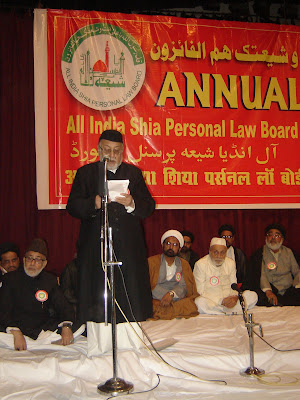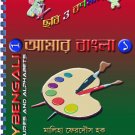Whither Sudan?
Sudanese Presidential Adviser Mustafa Othman Ismail speaks to Al-Ahram Weekly about the spectre of secession. The following interview was conducted by Asmaa El-Husseini and El-Azab El-Tayeb
 |
Mustafa Othman Ismail
|
What is your reaction to the statements made by First Vice-President Salva Kiir, in which he called on the southerners to vote in favour of secession at the referendum scheduled for 2011?
My only comment is that the peace agreement signed by the National Congress Party (NCP) and the Sudan People's Liberation Movement (SPLM) calls on both partners to move towards the option of unity. It is true that there are problems facing the implementation of the agreement, but the current efforts focus on implementing it through the existing partnership in the government of national unity. Therefore, both partners have a duty to comply with the provisions of the agreement and work hard for the option of unity.
The SPLM has accused the NCP and the central government of making unity unattractive by failing to implement development projects in the south. How do you react to that?
Let me call your attention to something that many do not know. According to the Naivasha Agreement, the share of south Sudan in wealth goes entirely to the SPLM. Therefore, the lack of implementation of any project is something for which only the SPLM and the southern government are to blame. As you know, the budget of the state is divided between the north and the south. The peace agreement has resolved this matter from the beginning. It allocated specific sums to south Sudan to make unity attractive.
Are you telling me that the central government is not responsible for implementing projects in southern Sudan?
You're right. The government is not responsible for implementing any projects in the south.
Are you prepared in the north to accept the option of secession without fuss?
We certainly hope that the southerners would opt for unity. And on our side, we will keep working towards this goal for a number of reasons. One is that the Naivasha Agreement makes it our duty to make unity the primary option. Another is that we are convinced that secession would be as harmful to the south as it is to the north, and bad news for the entire region. Secession will not lead to security and stability between north and south, but will be a regional precedent and the start of a period of tensions and disturbances. A third reason is that Sudan is a country with enough room for everyone, due to the cultural, ethnic, and religious pluralism which we have been promoting over the past four years. A fourth reason is that the southerners are in full charge of the south right now. The southerners have seats in the administration of all the northern governorates and in the federal government as well. They can rule the entire country too, for the current constitution allows for the president to be a southerner. This being the case, why secede? What are the reasons for secession? If I were a southerner I would work hard for unity, for it would enable me to rule Sudan. I therefore find no reason for the recent calls for secession in the south. Personally, I doubt the accuracy of the remarks attributed to Salva Kiir, for he has repeatedly spoken in support of unity.
Do you believe that there are regional powers, perhaps even international powers, pushing for the secession of the south? After all, Salva Kiir's recent remarks coincided with a decision by the US administration to renew sanctions on Sudan for another year.
One can distinguish between two types of international positions in this regard. Some people, thinking of their own interests, encourage the secession of the south. Others care for the interests of Sudan and Africa and try to maintain the unity of Sudan, because unity is essential for those interests. I agree with you that there are parties trying to promote their own interests by encouraging the south to secede.
There is a near consensus that the option of secession will not end the problems of the south, but trigger worse problems, for it may lead to a civil war. Already, there are signs of conflict among southern tribes and factions.
I totally agree. Secession will not lead to stability in the south, as its supporters imagine, and may even destabilise the south and the entire region. Therefore, our first priority at present should be to focus on the unity of Sudan.
There are groups in the north that are in favour of secession. What can you do to neutralise their impact?
All political groups, and this goes for those with close links to the SPLM or other factions, have a duty to maintain unity and make it attractive.
What's happening with the talks in Doha about Darfur? Is there hope of a breakthrough?
The talks in Doha are scheduled to resume in mid-November. There is a consensus, regionally and internationally, that the coming phase needs to be decisive. But the main obstacle facing us is the discord and divisions in the ranks of the insurgent movements in Darfur. We are hoping that efforts to unify the position of those groups would bear fruit.
Qatar, Egypt and Libya are all trying to resolve that crisis for example. Do you think that it would be better for such countries to work in tandem?
It is our hope that all efforts would contribute to finding a solution to the Darfur problem and to making the talks in Doha a success. If there is enough goodwill, all the current efforts would help bring a successful conclusion to the talks in Doha.
Is the Doha dialogue the only ongoing mechanism to containing the crisis in Darfur?
At least for us in Sudan, it is the main mechanism.
Do you see a contradiction between the mediation roles of Egypt and Qatar?
Let me answer this by repeating what Egyptian Foreign Minister Ahmed Abul-Gheit said, which is that the Egyptian role is geared towards bringing a successful conclusion to the talks in Doha.
US Envoy Scot Gration has recently been making efforts to unify the factions in Darfur. Is he helping bring the crisis to an end?
It all depends on the goals and intentions involved. If Gration's aim is to find a comprehensive solution to the crisis, then he is helping. But if his goal is to make the factions unite in undermining the talks with the government, then he is not helping.
How does the Sudanese government see Gration's efforts in this regard?
So far we generally believe that the intentions of the US envoy are good, despite all the pressures he is facing inside the US administration. We hope to see his intentions turn into actions.
Don't you think that declaring Halayeb a voting constituency may undermine Egyptian- Sudanese relations? Wouldn't it have been better for the Sudanese authorities to refrain from such a move?
Let me tell you that the declaration of Halayeb as a voting constituency was not a decision made by the Sudanese government. It was a decision made by the elections commission in response to requests by Sudanese citizens living in the area. So let's not be too hard on the commission. It did not consult the Sudanese government before making its decision, but simply looked into the facts and recognised the need of citizens to participate in the elections. This is why it acted this way. When it comes to Sudanese-Egyptian relations, what we need is to find a comprehensive way to resolve that issue. It is my belief that Egyptian President Hosni Mubarak took a step in the right direction during my meeting with him last Sunday. He issued prompt instructions for joint Egyptian-Sudanese companies to begin investment and to start laying down infrastructure in the area. This is a very positive step in my opinion.
Has the declaration of Halayeb as a voting constituency affected relations between Cairo and Khartoum, as some say?
I haven't noticed that at all. In fact, the matter was not on the agenda of my meeting with President Mubarak. President Omar A���l-Bashir visited Cairo recently. There may have been some negative coverage in the media, but I don't think this has affected the course of bilateral relations.
The Committee of African Wisemen has suggested mixed tribunals to try war criminals in Darfur. You don't seem to have taken a clear position on it. How would you respond to this idea? And would it affect the work of the International Criminal Court (ICC)?
We have generally approved the committee's report. As for the formation of mixed tribunals, we have asserted our commitment to justice. We want anyone who committed crimes in Darfur to be brought to justice, regardless of his position. Our only condition is that this be done in a fair and transparent manner. What we want is for the new mechanism to comply with the principle of the independence of the judiciary. This is not the first time this idea comes up. It was suggested during the visit by the Arab League secretary- general to Khartoum after the ICC issued an arrest warrant on President Al-Bashir. Now that the idea is floated again, those who want to implement it must start a dialogue with the Sudanese judiciary. In principle, we are for any mechanism or effort leading to justice, reassurance, and transparency while maintaining the independence of the national judiciary.
If such a mechanism is introduced, would it supersede the ICC arrest warrant on President Al-Bashir?
We have rejected the warrant to start with. So there is no room for cooperation with the ICC. Therefore, we oppose the trial of any Sudanese outside Sudan. But we have agreed to cooperate with African forums on various directions and levels. This made us accept the suggestions contained in the report of the Committee of African Wisemen. If the African mechanism becomes a substitute for the ICC, then it would offer a way out for those who sponsored Al-Bashir's arrest warrant. But if those who issued the warrant keep pushing for it, then the confrontation between the ICC and the Sudanese government would continue.









 Comment
Comment Recommend
Recommend Printer-friendly
Printer-friendly










